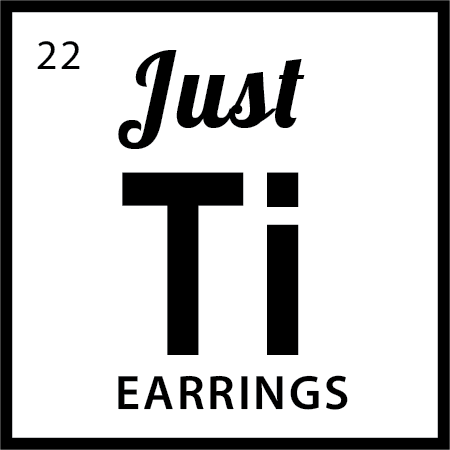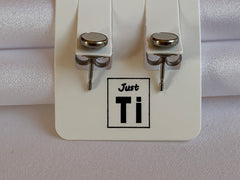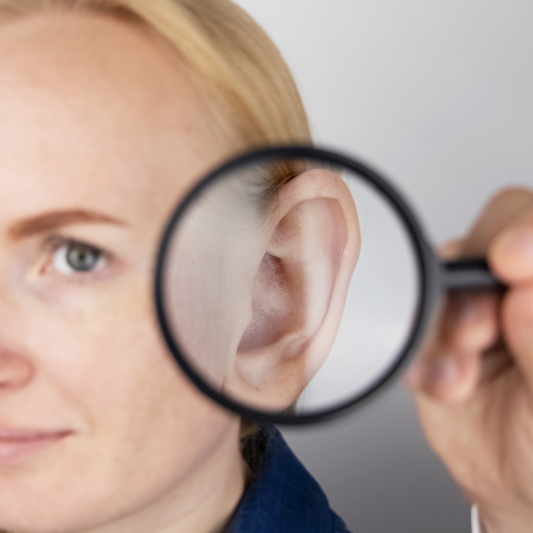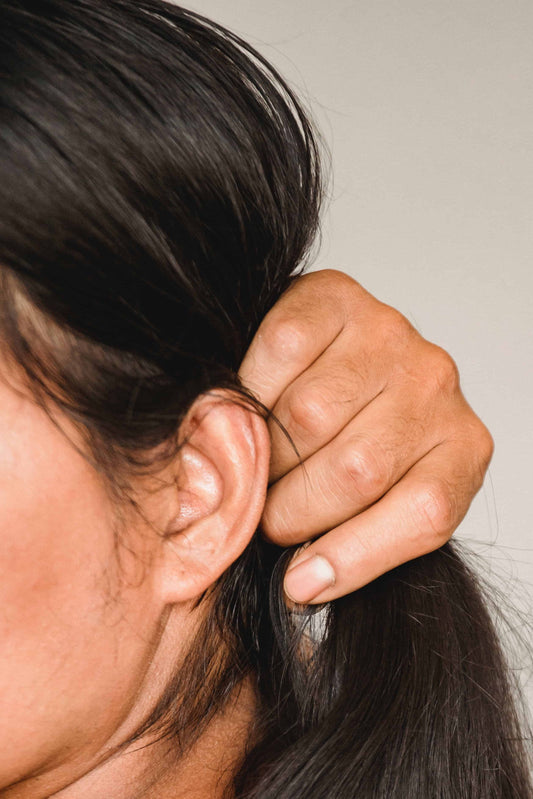
Sensitive Ears? Here's How to Rock Earrings Without the Pain
Share
Having sensitive ears can be a major bummer when rocking your favourite earrings. Whether you're trying to find a special set of earrings for a formal occasion, or want to switch up your everyday look, it can be challenging to find earrings that won't bring on that dreaded pain.
But fear not, sensitive-eared friends! There are tons of great earring styles that won't compromise on fashion and won't cause any additional pain. In this blog post, we'll discuss how to wear earrings without pain, and provide tips on how to find the perfect pair. From hypoallergenic options to lightweight materials, there are endless options available for those looking to add a bit of sparkle to their ears, without any of the accompanying pain..
1. Learn about Hypoallergenic Earrings
Hypoallergenic refers to products that have been specially designed to reduce the risk of allergic reactions. Hypoallergenic products are often designed to be gentle on the skin, making them suitable for those who suffer from skin sensitivities.
Earrings made with safe metals offer increased durability due to the use of non-corrosive materials. Nickel-free earrings provide a safe and secure way to accessorize without the risk of uncomfortable reactions. They also allow for more stylish options, as many fashionable colours and designs are now available in nickel-free materials.
According to board-certified dermatologist Dr. Marchbein, nickel sensitivity is "likely allergic contact dermatitis, or ACD, which is a form of eczema characterized by dry, itchy pink or red patches on the skin caused by exposure to certain chemicals—in this case, various metals found in jewelry."
2. Choose the Right Material
Choosing a pair crafted from hypoallergenic metals is important when shopping for earrings. This type of metal is usually made with nickel-free, which means they won't cause irritation or an allergic reaction in most people with sensitive skin or allergies to nickel and other materials found in everyday jewelry. Stainless steel can work for some people with allergies, but there are many different types and most stainless still contain about 5% nickel.
On the high end, 14k gold also works for many wearers, but this material is soft and can easily damage. White gold is gold alloyed with other metals such as nickel . Copper pieces are also a not a good alternative since it will corrode and turn green. Plastic is a good option since it is light and contains no metal at all. However posts tend to be thicker and will break. If you ask us, titanium earrings are the best option for anyone with a nickel allergy.

3. Try Different Backings
When looking for earrings, it is recommended to go for ones with "comfort-fit backings" (known as butterfly or clutch backings) that will give you extra support and make them more comfortable to wear. Some backings also include a small plastic disc at their base to provide extra separation from the metal. These prevent the metals from contact with your ears and causing discomfort as time goes on.
When shopping online, it is important to read the product description carefully to ensure you are buying what you need. Common materials good for those with sensitivity to metals include plastic, silicon and titanium. Double-check the measurements of the backing to ensure it is the correct size for your earrings.
4. Invest in Quality Earrings
Gold-plated or gold vermeil earrings may be less expensive than high-karat gold and have some advantages, but there are also some drawbacks to consider. Gold plating is a thin layer of gold applied to the surface of another metal, usually copper or silver. While gold plating can create an attractive result, the thin layer of gold can wear away quickly, leaving the underlying metal exposed. When this base metal contains nickel, then contact with the sensitive skin will cause the old familiar itchy sore reaction.
Vermeil earrings generally use a higher-quality base metal, as even sterling silver can contain traces of nickel. Unfortunately, consumers are not able to find this kind of technical information easily, so buying from reputable brands is the best way to go. Of course, the old saying about something being too good to be true applies here as well; the cheaper the earrings, the more likely they use cheaper (containing nickel) alloys.
5. Be Wary of Prolonged Wear
Sometimes it is better to skip jewelry altogether if you suffer from metal allergies. However, that doesn't mean you need to stop wearing fashionable accessories completely – save them for special events and make sure your style makes a statement. When going out, opt for hypoallergenic earrings and be conscious of how long you are wearing them. You could even set an alarm on your phone to remind you to take them off. Or only put them on when you have arrived at the event to save yourself the travel time there.
If you experience pain, itching, or discomfort around a pierced area at any point in the day (especially after prolonged wear), it's important to remove whatever jewelry is causing it and clean the area with specialized piercing aftercare soap and warm water. Do not put it back on until the symptoms are gone. Following this process and allowing sufficient time between wearing troublesome pairs of earrings should make a huge difference!
Last Year's Best Sellers
Here are justti's best sellers from last year. Our customers are enjoying stylish earrings made from the precious metal titanium. Check out our Hoops, Studs and Drop Earrings.
1. TI-GO Magnetic Base
2. Titanium Ball Studs
3. Gem Studs
4. Titanium 25mm Hoops
5. Jewelled Curve







